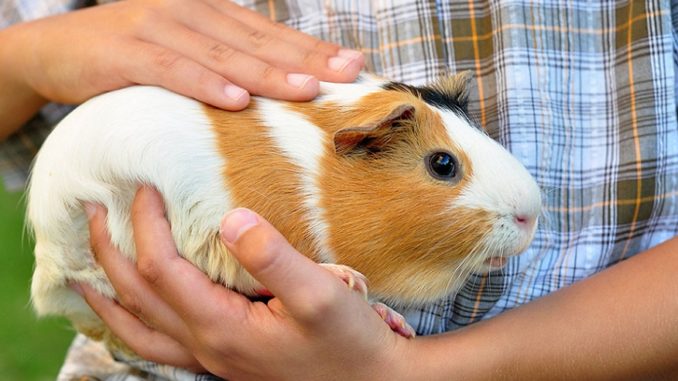
Guinea pigs are incredibly sensitive to fluctuating temperatures. Winter months require you to think ahead and make preparations to keep your pet comfortable and healthy. It’s always essential for you to create homeostatic conditions to help them adapt to the changing weather better. They live the best when subjected to a temperature range of 18-degree Celsius to 25-degree celsius. It is essential to keep them warm when the temperature falls.
Here’s your handy guide to keeping your Guinea pig warm.
Place the cage in a room that isn’t very windy and humid
Keep the Guinea pig in a room that doesn’t have many drafts and winds, and is not incredibly moist to prevent your pet from catching a cold.
It is not advisable to place the cage in the bathroom, laundry room, and the porch where there is a constant wind supply and water flow.
Add extra bedding material to the hutch
Adding additional bedding material to the cage provides extra padding and warmth to your Guinea pig. It is always a good idea to add wooden shavings, fleece, and newspaper shreds to the cage.
As the temperature drops, this can be used as a shock absorber and can be like a faux burrow that will keep your pet warm. Always remember to keep them warm. Dry bedding can be used to prevent the spread of a cold.
Invest in a rodent heating pad
Buying a rodent heat pad for your Guinea pig is a good idea. These usual plugins and heatable devices that can help you modulate the temperature such that it is comfortable for your Guinea pig.
A microwaveable heat pad has a long heat life and may last for the whole night to keep your pet warm.
Avoid opening and closing of doors
Opening and closing of doors can lead to the entry of chilly air through the vents and may cause the temperature to go down.
Try to reduce the usage of windows and other openings during the winter months to prevent your Guinea pig from falling sick. Also, use towels and air draft blockers to avoid any additional ventilation.
Move your Guinea pig to the central part of your home
In many houses, the outer rooms are much colder and lack the adequate warmth required by a Guinea pig to thrive well.
Consider setting up a cage in the central part of your home, which is well supplied with heat instead of placing the cage in a hallway or abandoned corners.
Feed your Guinea pig fresh hay, vegetables, and water daily
To maintain body homeostasis, Guinea pigs have to elevate their basal metabolic rate to increase heat production in the body.
Supplying them with fresh hay, vegetables, and water is essential to take care of all their metabolic needs. Make sure to change the water daily and take into account that water should not be hot.
Invest in a well-insulated hutch
If you think you cannot keep your Guinea Pig inside your home and want to place it outside in your porch or garden all year long, consider investing in a well-insulated hutch that will keep them going all year long.
A well-insulated cage will prevent air from entering through the vents and may prevent your Guinea pigs from falling sick.
Raise the height of the hutch
A well-raised coop will prevent unnecessary heat loss and avoid dampness inside it. Try adding extra legs to the furniture and raise it above the ground level.
The science behind adding height is that there is minimum contact with the ground, preventing the transduction of heat and cold from spreading to the wood of the hutch due to the atmospheric conditions.
Always keep the hutch dry
It’s critical to ensure that the hutch is not damp or has excessive moisture that can cause loss of heat through the wood.
Also, change wet bedding frequently to avoid the risk of them catching a cold.
Arrange an open place for your Guinea pigs to exercise
Winters are no excuse, and your Guinea pig needs to move around even sufficiently when the temperature drops down.
Arrange for a well-insulated space that can be used for running around by your Guinea pig. Exercise will also help in a heat-generating mechanism that is very important in the chilly winter months.
Beware of predators
Winter is the peak hunting time for many predators, and if your hutch is placed outdoors, it might attract predators that can attack your Guinea pigs.
Always ensure the safety of the material of the furniture and how sturdy it is.
Thus, winter can be a hard time for your Guinea pigs and requires your proactiveness to ensure they live a healthy life through this season. Invest in good hutches, bedding, and temperature monitoring thermometers and be assured that they are safe. Adequate steps, when prepared for before the season, can give you a smooth winter ahead.

Leave a Reply